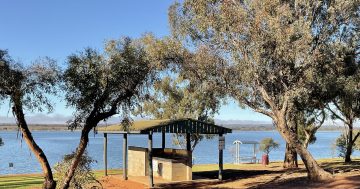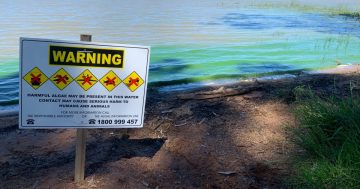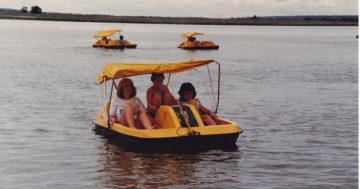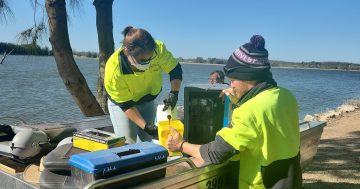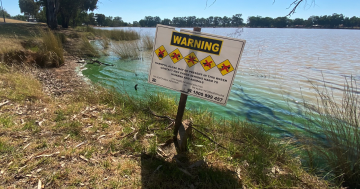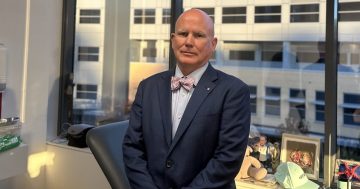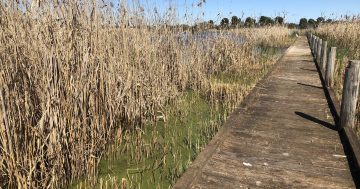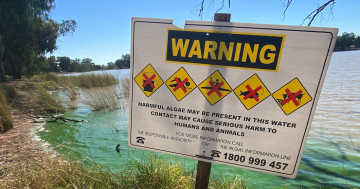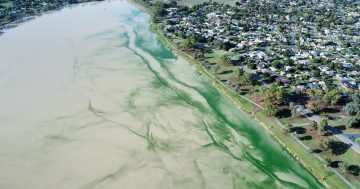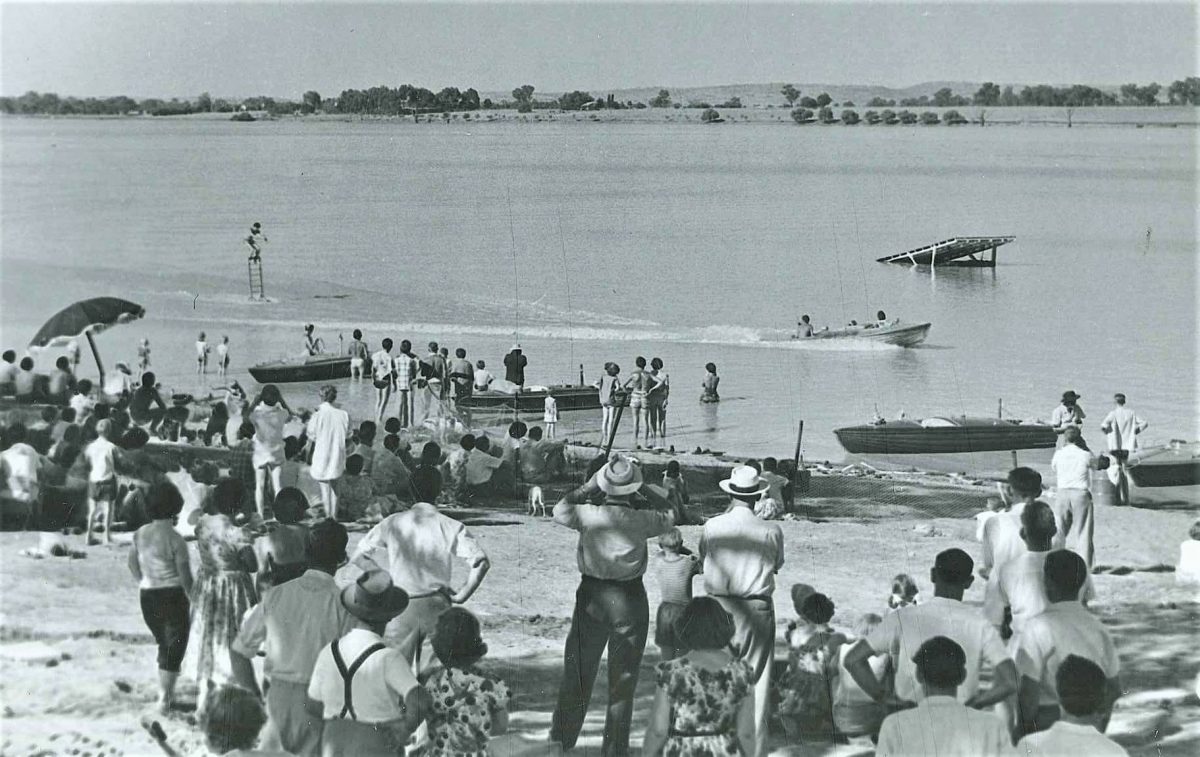
A waterskiing carnival at Lake Albert in the 1960s. Photo: Museum of the Riverina, via Lost Wagga Wagga Facebook page.
Lake Albert and Lake Wyangan were once the beating heart of Wagga and Griffith respectively. During bygone summers, they were full to the brim with families picnicking, kids swimming and amateur athletes competing in aquatic sports.
But this past decade, frequent blue-green algal blooms – cyanobacteria that can produce poisonous toxins – have restricted the use of both lakes, frustrating town residents. At present, households are warned to even keep their pets out of Lake Albert.
A Charles Sturt University environmental water expert says the lakes’ glory days may never fully return, with factors such as climate change, increased population, agricultural expansion, and domestic chemical use making management of the waterways increasingly difficult.
“I understand the frustration about the lakes, but it’s really a complex system,” research fellow and scientist Dr Xiaoying Liu said. “The problem with Lake Albert and Lake Wyangan is they are closed-water bodies. The nutrients [that contribute to the formation of blue-green algae] don’t have the chance to be flushed out.”
Asked what caused the growth of dangerous nutrients, Dr Liu said further research was needed, but potential factors included an increase in external nutrient inputs due to runoff from agricultural and urban areas around the lake, and internal nutrients cycling within the lake system.
Examples of external nutrient inputs include farming chemicals and domestic products such as weed killer and laundry powder.
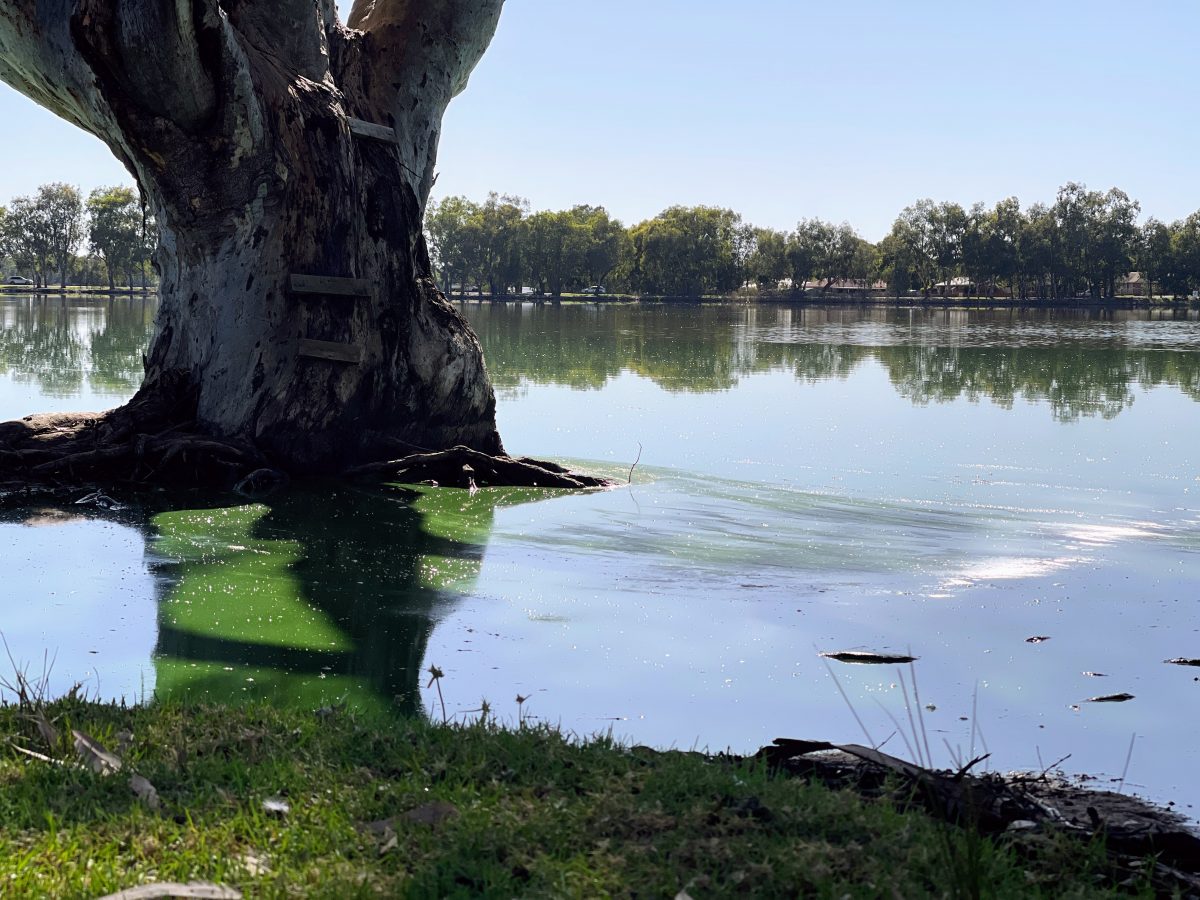
Slimy water at Lake Albert on 5 February. Photo: Supplied.
“Climate change is also a factor, as is human activities,” Dr Liu said. ”The timing, frequency and duration of flooding have changed a lot. It changes the whole system. It influences the water cycle … the population has also increased.
”Look at how big Wagga is now … more and more people need more and more food. More human activity can affect our environment and wildlife.”
In 2018, Wagga City Council installed in Lake Albert five solar-powered buoys, which use ultrasound technology to help disrupt algal blooms. Dr Liu said this was a good idea but no silver bullet.
“It’s a temporary relief. It might cure the symptoms but not the disease. The ultrasound affects the floating and the buoyancy of the algae … it sinks to the bottom and gets degraded and dies off. It’s good for the short term. In the longer term, it may cause other problems – after the algae die off, the nutrients will remain in the system.”
Victoria’s Greater Shepparton City Council has been successful in curbing once-frequent blue-green algal blooms in the town’s prized Victoria Park Lake over a longer timeframe, with a major development of the area that included planting 120,000 wetland plants and installing a pump that recirculates the water around the system. Dr Liu sees the merit in such an approach.
“Planting aquatic plants to filter through the nutrients is a good strategy, the plants can absorb them,” she said.
“The problem is how to maintain Lake Albert’s permanent water levels. Lake Albert has experienced considerably lower water levels more frequently and the likely outcomes of this include that the lake’s dried sediment will release nutrients following rewetting events and has the potential capacity to change water quality.
”Wagga Wagga City Council is progressing with transferring of water from the Murrumbidgee River to Lake Albert. The timing of when to add water from Murrumbidgee River to Lake Albert and water quality of Murrumbidgee River at that time will be critical.”
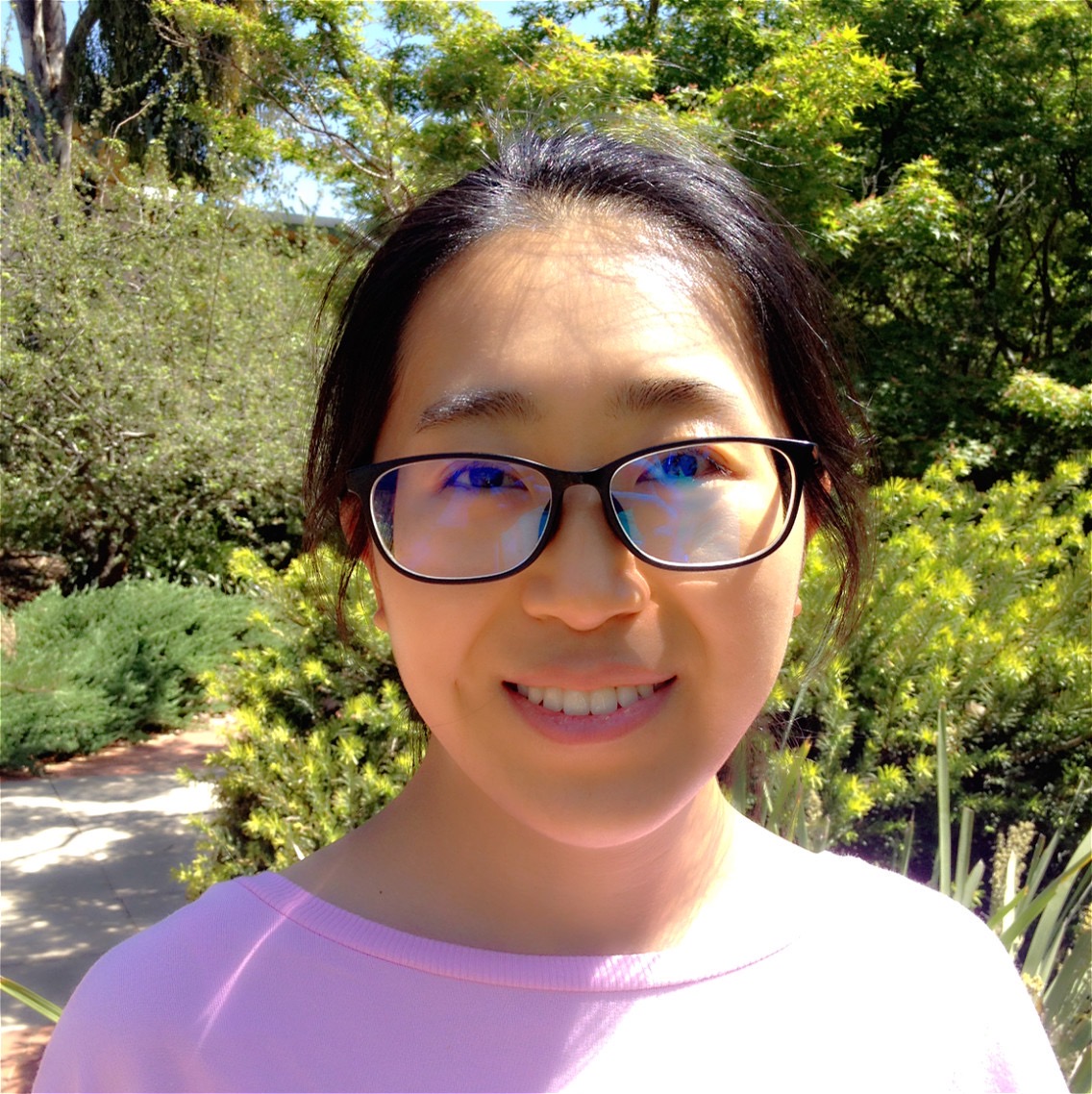
Dr Xiaoying (Sha Sha) Liu. Photo: Supplied.
Wagga City Council has proposed the construction of a pipeline between Lake Albert and the Murrumbidgee River so the lake can be topped up each winter to maintain high permanent water levels, but this project has not been able to secure sufficient state or federal government funding to go ahead.
While Riverina residents have taken their anger out on both Wagga and Griffith councils for not being able to use their towns’ lakes, Dr Liu said fixing our precious waterways required a whole-of-community effort.
“We can all take action to help out, not just the councils, to improve the quality of our lakes,” she said.
”I would encourage people to do research online … we organise workshops for local students. The younger people are the future of the country, they need to learn what to do. Learning more is a small step but it’s necessary.”







